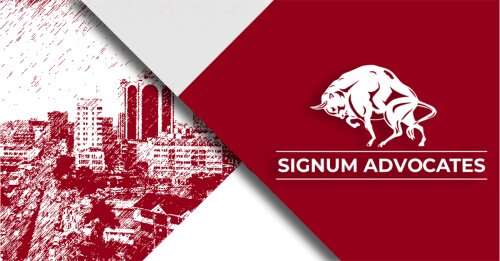Best Public-Private Partnerships (PPP) Lawyers in Uganda
Share your needs with us, get contacted by law firms.
Free. Takes 2 min.
Or refine your search by selecting a city:
List of the best lawyers in Uganda
About Public-Private Partnerships (PPP) Law in Uganda
Public-Private Partnerships (PPP) are cooperative arrangements between the government and private sector companies to finance, design, implement, and operate projects or services that are traditionally provided by the public sector. In Uganda, the use of PPPs has grown significantly as a way to enhance infrastructure development, improve service delivery, and promote economic growth. The framework for PPPs in Uganda is governed primarily by the Public Private Partnership Act, 2015, which sets out the legal, institutional, and procedural guidelines for engaging the private sector in public infrastructure and service projects. This legislation aims to ensure transparency, value for money, and accountability in these partnerships.
Why You May Need a Lawyer
Navigating Public-Private Partnerships in Uganda can be complex, especially considering the legal, financial, and regulatory requirements involved. There are several situations where seeking legal advice is essential:
- Drafting and reviewing PPP agreements to clearly outline rights, responsibilities, and risk allocations.
- Understanding regulatory compliance, including approvals from relevant authorities.
- Participating in competitive bidding or tendering for PPP projects.
- Undertaking due diligence before entering into PPP arrangements.
- Resolving disputes during the implementation or operation phase of a PPP.
- Negotiating financing, guarantees, or government support for projects.
- Navigating complex cross-border or multi-party PPP projects.
- Addressing land acquisition, environmental, or licensing issues that may arise in the course of a PPP project.
- Complying with local content requirements and employment laws.
A lawyer experienced in PPP matters can help stakeholders understand their obligations, minimize risks, and enhance the chances of successful project delivery.
Local Laws Overview
The legal framework for Public-Private Partnerships in Uganda is shaped by several key laws and regulations:
- The Public Private Partnership Act, 2015: This is the primary legislation that governs the design, procurement, implementation, and management of PPPs in Uganda. It outlines the roles of government institutions, project preparation procedures, and approval processes.
- Public Procurement and Disposal of Public Assets (PPDA) Act: PPP projects are subject to procurement rules to ensure transparency and competitiveness in bidding.
- Investment Code Act: This law governs the investment climate and incentives offered to private entities, including those participating in PPPs.
- Environmental Laws: Laws such as the National Environment Act require environmental and social impact assessments for large-scale infrastructural projects.
- Land Laws: Land tenure and acquisition laws are important for PPPs involving use or transfer of public or private land.
In addition to these, various sector-specific laws (in roads, energy, water, and health) may apply depending on the nature of the PPP project.
Frequently Asked Questions
What types of projects can be implemented through PPPs in Uganda?
PPP arrangements in Uganda can be used for infrastructure development, including roads, energy, water and sanitation, health facilities, education infrastructure, and information technology systems.
Who can enter into a PPP with the government in Uganda?
Private companies, consortia, non-governmental organizations, and community-based organizations can partner with the government, subject to meeting capacity and legal requirements.
What is the process for initiating a PPP project in Uganda?
The process involves project identification, feasibility studies, preparation of a PPP proposal, approval from the PPP Committee, procurement, contract signing, and implementation.
Are foreign companies allowed to participate in PPPs in Uganda?
Yes, both local and international companies are eligible to participate in PPP projects, subject to compliance with Ugandan laws and regulations.
How are risks shared in PPP agreements?
Risks are identified and allocated between the parties, often according to which party is best able to manage each risk. This is articulated within the PPP contract.
What government support is available for PPP projects?
Support can include guarantees, viability gap funding, or provision of public resources such as land, depending on the project's feasibility and structure.
How are disputes resolved in PPP projects?
The PPP Act provides for dispute resolution mechanisms, typically through negotiation, mediation, arbitration, or litigation as agreed in the contract.
What approvals are required before signing a PPP contract?
PPPs must be approved by the sector ministry, the PPP Committee, and, for higher value projects, by the Minister of Finance and the Cabinet.
Can PPP contracts be terminated early?
PPP contracts can be terminated based on the terms and conditions set out in the agreement, generally for reasons such as default, force majeure, or mutual consent.
What are the main risks for the private party in a PPP?
Risks can include financial risk, construction risk, operational risk, regulatory risk, and force majeure events. These are shared or managed through the PPP contract.
Additional Resources
- Public Private Partnership Unit - Ministry of Finance, Planning and Economic Development: This unit coordinates and supports PPP implementation in Uganda.
- Public Procurement and Disposal of Public Assets Authority (PPDA): Oversees procurement processes for PPP projects.
- Uganda Investment Authority (UIA): Provides guidance and support for investors, including those interested in PPPs.
- Uganda Law Society: Can assist with referrals to qualified legal practitioners with expertise in PPP law.
- Sector Ministries such as the Ministry of Works and Transport or Ministry of Health: Relevant for sector-specific PPP projects.
Next Steps
If you are seeking legal advice on Public-Private Partnerships in Uganda, it is advisable to:
- Clearly define your objectives and the nature of your intended or existing PPP engagement.
- Collect all relevant documents, such as project proposals, feasibility studies, draft agreements, and correspondence.
- Identify and contact a qualified lawyer or law firm with expertise in PPP law and Ugandan regulatory requirements.
- Schedule a consultation to discuss your situation in detail and seek guidance on compliance, negotiation, or dispute resolution as needed.
- Stay informed of policy updates, regulatory changes, and best practices in PPPs through official resources and professional networks.
Professional legal support can help protect your interests, streamline processes, and ensure the success of your PPP project in Uganda.
Lawzana helps you find the best lawyers and law firms in Uganda through a curated and pre-screened list of qualified legal professionals. Our platform offers rankings and detailed profiles of attorneys and law firms, allowing you to compare based on practice areas, including Public-Private Partnerships (PPP), experience, and client feedback.
Each profile includes a description of the firm's areas of practice, client reviews, team members and partners, year of establishment, spoken languages, office locations, contact information, social media presence, and any published articles or resources. Most firms on our platform speak English and are experienced in both local and international legal matters.
Get a quote from top-rated law firms in Uganda — quickly, securely, and without unnecessary hassle.
Disclaimer:
The information provided on this page is for general informational purposes only and does not constitute legal advice. While we strive to ensure the accuracy and relevance of the content, legal information may change over time, and interpretations of the law can vary. You should always consult with a qualified legal professional for advice specific to your situation.
We disclaim all liability for actions taken or not taken based on the content of this page. If you believe any information is incorrect or outdated, please contact us, and we will review and update it where appropriate.
Browse public-private partnerships (ppp) law firms by city in Uganda
Refine your search by selecting a city.
















